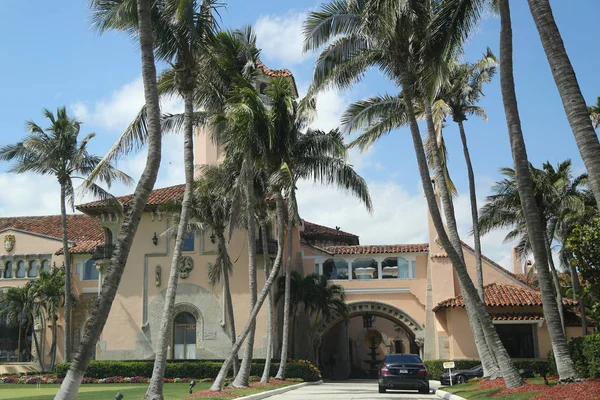Milei Vindicated
One year on, the Argentine president has outperformed expectations.

By all reasonable standards, Javier Milei should never have become president of Argentina. An outsider to the political class that rules the country, Milei is the son of middle-class parents with no public profile. He and his family suffered greatly from the staggering inflation and general economic collapse of Argentina during the late ’70s and early ’80s. The country’s lamentable condition inspired Milei—among thousands of other young Argentines—to dedicate himself to the study of economics (Argentina has one of the highest concentrations of economists per capita) in an effort to understand where things went wrong and, perhaps, how they might be improved.
During the course of his university studies, Milei encountered the works of Murray Rothbard and other economists of the Austrian School such as Friedrich Hayek. He left a convert to the radical school of libertarian thought known as anarcho-capitalism, which proposes the total abolition of the state and its replacement with businesses and other methods of private-sector social organization. Milei was always somewhat flamboyant—he was nicknamed “El Loco” in his youth for his furious conviction—and his new, revolutionary conception of the Argentine Problem provided excellent fuel for the spark of his aggressive style.
Milei entered the public eye as a media personality, who shouted down interviewers on public television and heaped scorn on journalists and politicians. His radical ideological orientation, his combative style and his extreme personal eccentricities—the characteristic unruly mop of hair, a highly unusual private life (he claims to be a tantric sex guru), rare religious proclivities (he professes a desire to convert to Orthodox Judaism), and a bizarre relationship to his dogs (he has five, all clones of his one-time pet English Mastiff named Conan, and with whom he consults on matters political and spiritual) made him an unlikely proposition either for election or for successful governance.
But Milei has managed to defy the odds and calculations of journalists and politicians, harnessing Argentines’ furor with the political status quo to successfully seat himself in the Casa Rosada (the Argentine executive office, equivalent to the White House). His tenure has proven remarkable, and he has likewise overturned the expectations of pundits, many of his fellow economists, and other more-or-less reasonable people to deliver the Argentine economy from looming hyperinflation and begin a vast campaign of substantive libertarian political reform with a finesse that would seem incredible from a perusal of his pre-presidential biography.
When Milei took office at the end of 2023, inflation was on an upward spiral, from five percent per month in January to a massive 125 percent per month in December. The previous Argentine government of Alberto Fernández created massive social programs in response to the Covid-19 pandemic, funding them with reckless deficit spending and a massive program of money creation from the Argentine central bank. When the flood of pesos inevitably devalued the currency and raised prices, Argentines began pushing more and more of their money into dollars, creating even more pressure on the national currency. In response, the Fernández government imposed price controls and tightened the country’s already strict currency controls, a reaction which utterly failed to stop inflation and simply stimulated the country’s already booming black market of currency conversion.
Upon entering office, Milei implemented an effective program of shock therapy. He cut the number of government ministries in half, slashed thousands of regulations, and implemented dramatic budget cuts. With a small minority in the Argentine Congress, he carefully ushered through legislation to privatize many of Argentina’s moribund state-owned companies, simplify the tax code, and eliminate some existing welfare programs while streamlining the remainder. He also clamped down on the Argentine central bank, reducing the issuance of new money (although that policy loosened somewhat later in his presidency). He also loosened Argentina’s currency controls, which devalued the peso but brought official exchange rates much closer to the real exchange rates.
Milei’s program achieved excellent short-term results, at a cost. The budget cuts ended deficit spending, producing the first budget surplus for many years. Without the excess money being ploughed into the economy from government welfare programs, inflation dropped rapidly—monthly inflation declined to just 2.4 percent in November 2024, the lowest rate in 4 years and a far cry from the 125 percent a month at the beginning of his term.
But the new political program also weighed heavily on Argentina’s poor. The poverty rate rose from an already high 42 percent to 53 percent. The loss of government subsidies for necessities like food, fuel, and rent meant that many poor households struggled greatly. The economy also entered a recession, shrinking for the first three quarters of Milei’s presidency.
These costs were seized on by critics, who argued that Milei’s success at restricting inflation was not worth the continuing impoverishment of the country and the accompanying recession. If the country did not exit the recession and begin to experience economic growth, Argentina might find itself in a hole it would never be able to dig itself out of, regardless of the rate of inflation. And indeed, there was some doubt that Milei’s program was sufficient to solve the complicated problems of the South American country.
But Milei, it seems, has had the last laugh. New economic data came out last week for the third quarter of 2024, showing that Argentina’s economy expanded at the brisk clip of 3.9 percent from July to September. Economic forecasts project the country to grow more than 5 percent next year, and the poverty level has begun to decline from its high in 2024, a remarkably quick recovery for the severity of the measures Milei has taken to arrest the country’s inflationary spiral. By the end of 2025, Milei may be able to claim both a defeat of inflation and a net-positive economy and poverty rate.
Argentina still has a long journey ahead of it before it is able to claim a stable and prosperous economy, and Milei still has the majority of his presidency to traverse. Many things can go wrong in a few years. But so far, the eccentric anarchocapitalist has been fully vindicated.
The post Milei Vindicated appeared first on The American Conservative.

